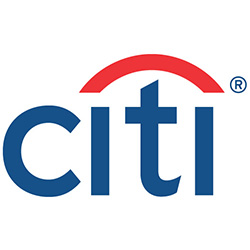Investment Strategies
Citi Private Bank Demystifies ESG Investing

ESG investing appears to be more popular than ever, with family offices said to be among the cheerleaders. The private bank says it has rolled out a guide for the perplexed.
Family offices have been at the bleeding edge of using financial firepower to tackle problems such as criminal re-offending, environmental pollution and adult illiteracy, but some need guidance on how to achieve the most impact, a private bank argues.
Citi Private Bank has today issued a report, part of its series of white papers for family offices, on how these organizations embrace environmental, social and governance-themed investment.
While as many as around 10,000 single and multi (source: Family Office Magazine, winter 2016/17) family offices in the US may differ widely in the expertise and resources needed to explore ESG approaches to investing, some need help in cutting through clunky jargon, which is where an organization such as Citi Private Bank intends to help. The firm has already set out ideas for FOs in areas such as cyber-security and managing aviation assets (see the latter example here). The ESG subject seems a logical step. The private bank’s report is called Why family offices are increasingly exploring social investment opportunities.
“Family offices have a played a significant leading role in advances in the social investing field in the past decade. Moreover, European family offices have been more advanced and active in using ESG approaches than their North American counterparts, where a more straightforward giving-to-philanthropy model has traditionally operated,” Edward Marshall, director, Global Family Office Group, Citi Private Bank, told this publication in a recent interview. He spoke alongside Stephanie Luedke, Global Head of Citi Investment Management.
“What they’re all looking for is practical advice from practitioners and other family offices. There is a lot of noise and sometimes confusing jargon in the social investing space. This practical advice need was the reasoning beyond authoring the white paper in the first place,” he continued.
The paper examines issues such as gaining ideas for ESG investment by holding family meetings; creating a social and financial mission statement; finding out what sort of areas or themes to invest in, such as education or health, creating a policy statement; building an actual portfolio, tracking progress and continuing to educate themselves on the topic.
Although terms can be sometimes hard to pin down, the field of "social investment" is now a large one. According to the Global Impact Investing Network (GIIN), its 2017 study found respondents oversaw $114 billion of social investments, and when other funds and organizations are included, the figure is likely to be far larger.
Citi Private Bank is not the only wealth management house to explain ideas and reach out to high net-worth and ultra high-net-worth clients in the ESG arena, of course. Others include the likes of Bank of The West, Abbot Downing and UBS. Such ideas are seen as ways of retaining clients and, importantly, attracting younger HNW and UHNW individuals.
Not just nice to have
No longer is socially-responsible investment about just avoiding
“bad” companies and sectors, which in the past raised concerns
about sacrificing returns. Increasingly, ESG investing is seen as
smart investing, Luedke said.
“What we’re seeing is a real shift away from the position of the 80s and 90s when it was about SRI, ... what came out of that was assumed that you were giving up some return potential. There has been a very important shift from that mentality,” she said. “There is potential for added benefits. You can reduce certain tail risks with certain investments when you are more mindful, for example, of the environment,” she said.
Another theme, her colleague Edward Marshall said, is how ESG and related investment fits with a trend of family offices seeking to put money directly into firms and situations, rather than go via a fund. “One factor we are seeing is that of family offices’ desire to go direct in general and there [are] increasingly more opportunities to go direct or co-invest with social investments,” he said, noting that this approach requires spending time and resources on due diligence.
Investors, in fact, need to be even more careful around due diligence when investing with purpose as there is the possibility that these investments can “pull on the heartstrings and potentially lead to investors shortcutting the diligence process," he said.
“Dispassionate analysis and due diligence is sometimes even more important in the social investment space,” he said.
Ideas around ESG and similar investment philosophies are spreading into business schools and among interns working in family offices. Marshall described the work Citi has done with the Stern School of Business at NYU and family offices.
“NYU has emerged as leader of innovation in social impact space and they have even started seminars dedicated to family offices and social impact. In these seminars, student teams of three to four MBAs undertake 12-week consulting engagements to complete an analysis of a `live’ impact investing opportunity/challenge facing a family office. The final consulting deliverable is a presentation to the client and a written analysis,” he said.
“Citi Private Bank was also able to partner with NYU’s Family Office Council to host an event in April 2018 on social impact with over 70 family offices in attendance. Part of the event included presentations/pitches by student social entrepreneurs to the family offices, in a sort of “shark-tank of social impact”, he added.
